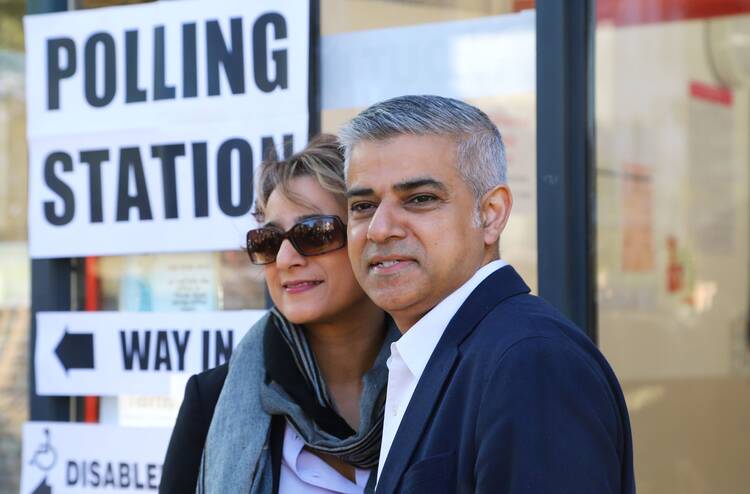Today’s a big electoral day here, in all the nations of the United Kingdom, as we go to the polls for a range of purposes. We haven’t yet begun to call it Super Thursday, but it’s the biggest cluster of elections on the same day for some years. This can safely be described as the biggest test of opinion of the current parliament until the next general election, which is not due until 2020.
The shadow of the forthcoming Brexit/Bremain referendum, whether or not the United Kingdom should exit or remain in the European Union, is long, yet these contests will take the political temperature of the country and its nations. Significant changes are almost certain to happen everywhere; the U.K. map will change by the weekend just as the European map will change, one way or another, in June.
This is not a parliamentary election. It is bound to affect the national governance of the country in a number of ways, not least in how local elections test the temperature of the larger entity, that of the government in power but also of the opposition parties. Local council elections are probably fought on local issues but national, international and, increasingly, constitutional issues do affect the outcome. Local candidates for whatever party will find their chances affected by voter perceptions of their party’s performance nationally, despite the poor state of the street-lighting or local provision of social services. A wise Bostonian once declared that “all politics is local,” but that was an observation uttered before the days of the 24-hour news cycle.
Today’s elections are in England and Wales, most eye-catchingly for London mayor and several other large metropoles but also for 124 regional councils and two parliamentary by-elections. Most significantly of all are the simultaneous elections to the devolved legislatures of Wales, Scotland and Northern Ireland. The previous most recent elections to the Holyrood Parliament in Edinburgh and the devolved assemblies in Cardiff and Belfast were in 2011. In Edinburgh, the Scottish National Party has been in power since 2007 with a substantial majority, while the Welsh government has been run by the Labour Party since 1999. The Democratic Unionist Party and Sinn Fein have been the two largest parties at Stormont in Ulster since 2011, participating in a frequently contentious but largely effective power-sharing arrangement in the Northern Ireland Executive.
The big story politically is the continuing anguish, north and south of the border, of the Labour Party. Leader Jeremy Corbyn has had to tackle a storm recently whipped up over allegedly anti-Semitic statements made by some of his party, forcing Labour’s candidate for London’s city hall to distance himself from his own leader. Despite his party’s travails, in London, candidate Sadiq Khan, the locally-born Muslim son of a bus-driver, may well end two terms of Tory incumbency by defeating Zac Goldsmith, son of a multi-millionaire who was, it is believed, once spotted on a red London bus.
Thus it might turn out that a Labour victory in London could come about despite Mr. Corbyn and his woes rather than signalling a Labour revival. At the same time the party faces the possibility, unimaginable only a few years ago, of coming third behind the Tories in the Edinburgh election. Nicola Sturgeon’s Scottish National Party looks set for another landslide win. Were that to happen, calls for a second independence referendum will only increase and may well be further underlined, as has been commonly thought for some time, in the event of a U.K.-wide vote to leave the E.U. next month.
David Stewart, S.J., is America's London correspondent.








